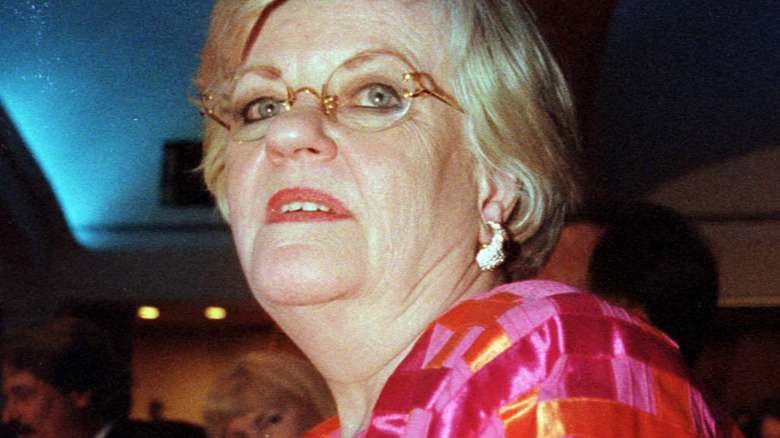Who Was The Woman Who Convinced Linda Tripp To Turn On Monica Lewinsky?
As Ryan Murphy's current third season of "American Crime Story" (subtitled "Impeachment") continues to examine the cultural forces that brewed into a perfect admixture for former President Bill Clinton's impeachment trial, the show has fomented a retrospective on the key figures involved, many of them women who were maligned or vilified by the media and public at large. As many may recall, the Clinton impeachment trial — which was intrinsically connected to his affair with Monica Lewinsky, then a young 20-something ex-White House intern, who's now a producer on the show — was generally acknowledged to be spurred by longtime bureaucrat Linda Tripp, who recorded her conversations with Lewinsky, her close friend and junior by more than two decades.
But, as the most recent episode of "Impeachment" illustrated, Tripp's decision to hand over the audiotapes did not come out of nowhere. It also germinated the idea that Tripp's impetus for giving the tapes to attorney Kenneth Starr (and even recording her phone calls with Lewinsky in the first place) was done in a bid to gain international fame by way of authoring a tell-all. And as "Impeachment" reminded audiences, none of it would have happened without the cajoling of a literary book agent and conservative Clinton critic.
So who is this critic, and what were their motivations? According to the actor who plays her in "Impeachment," it had everything to do with a sense of moral propriety — even if it harmed others in the process.
Lucianne Goldberg got the ball rolling on the Clinton scandal
Of course, the literary book agent in question is none other than Lucianne Goldberg. And in a September 29 interview with Vanity Fair, Margo Martindale, who plays Goldberg (pictured above) in "Impeachment: American Crime Story," was clear about the role Goldberg, a longtime Republican, played in bringing the Clinton-Lewinsky scandal to light. "None of this would have happened, I don't think, if her little finger hadn't been in on it pushing, urging," Martindale told the magazine. Martindale was also quick to reflect on her own feelings about the notable names and figures who had a hand in the Clinton impeachment controversy. "I believe that the people that I thought were villains and gossips and backstabbing, I think they were really standing up for their beliefs."
Goldberg herself touched on this sentiment talking to PBS' American Experience, saying, "Of course the more I listened to the tapes, the angrier I got. You know, this was a nasty bit of business." But Martindale, who watched a number of clips of Goldberg on YouTube to nail down Goldberg's motivations for encouraging Linda Tripp to go public with the tapes, believed there was a bit more to it, too. "She's after the story. She's after the book. She's after the inside scoop. But that's what she's made. That's what she's done."
On the topic of motivations, Golberg told American Experience of Tripp's: "Linda wanted the world to know about this. And I think the motivation was no deeper, no more shallow than that."


